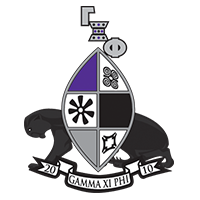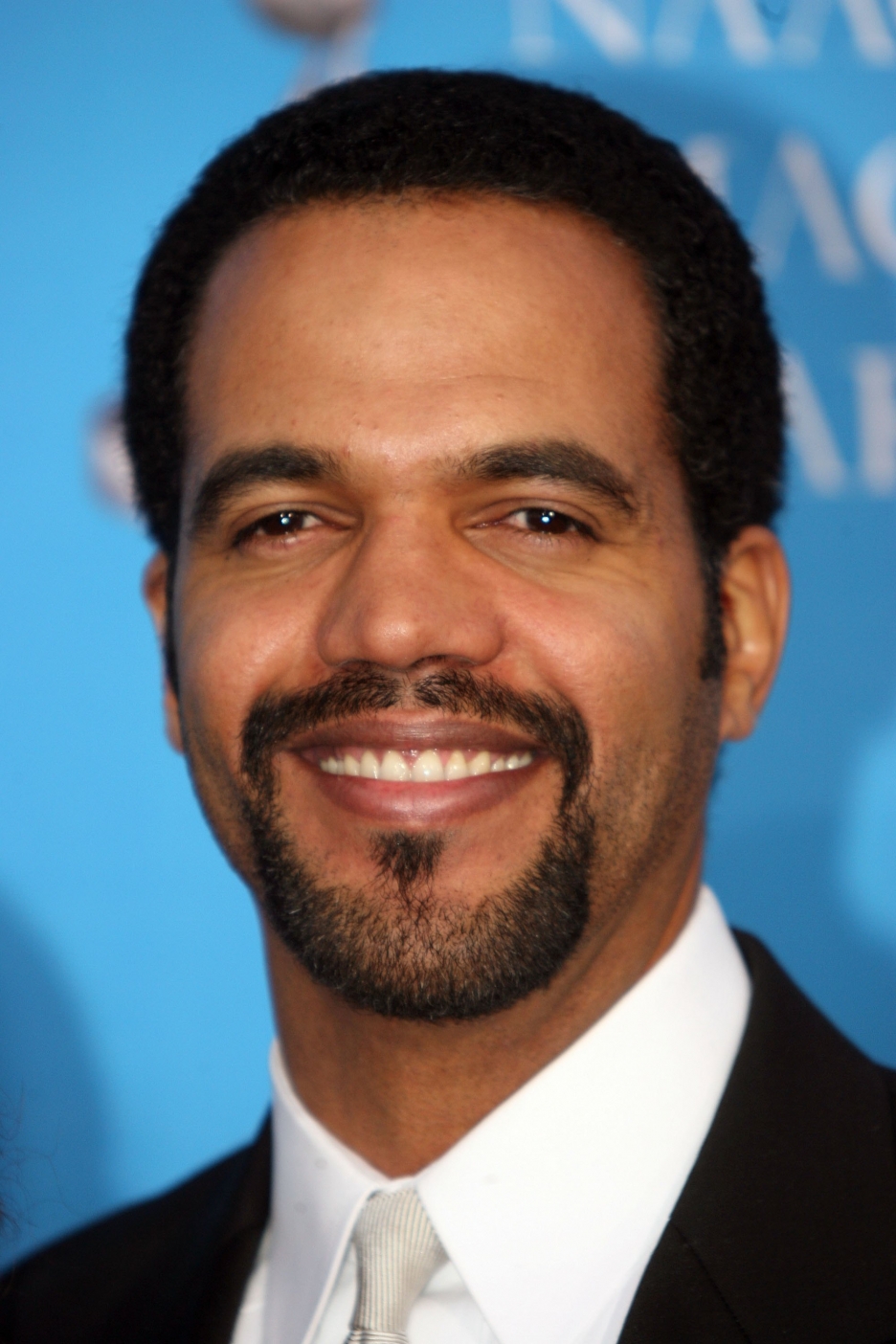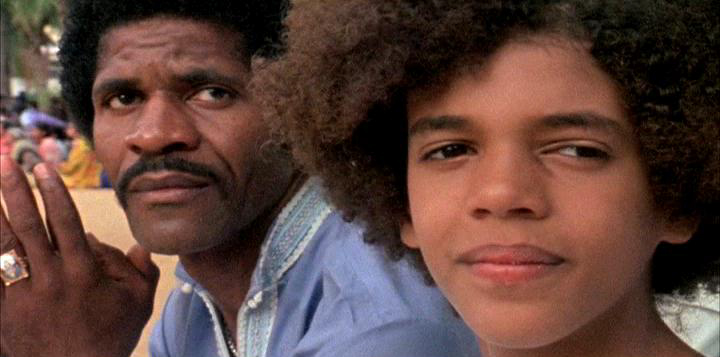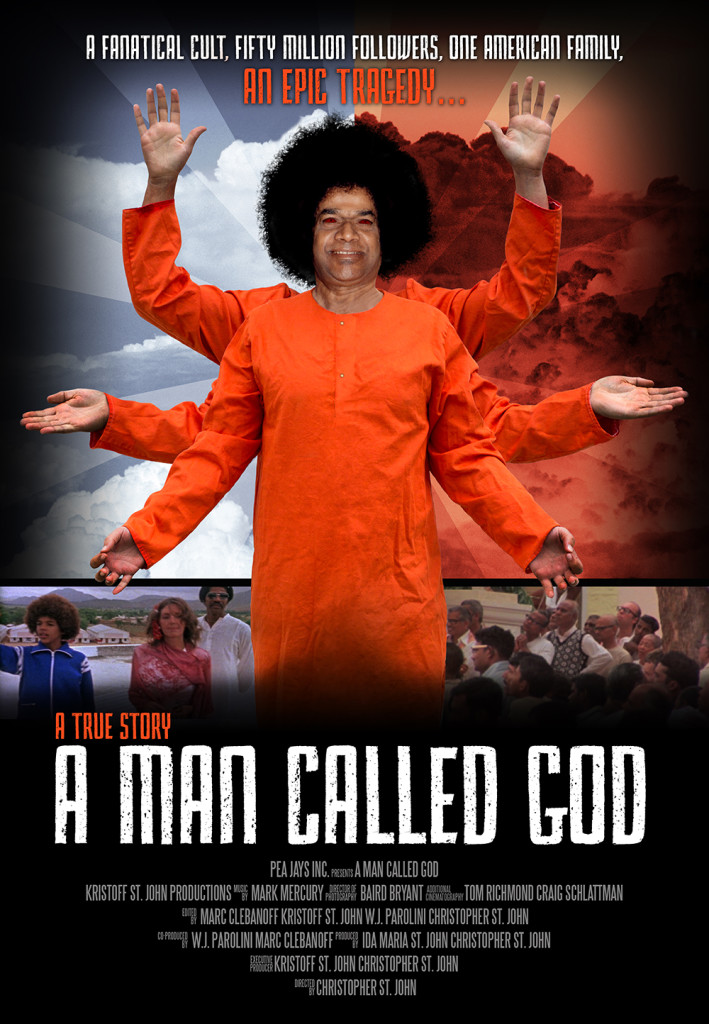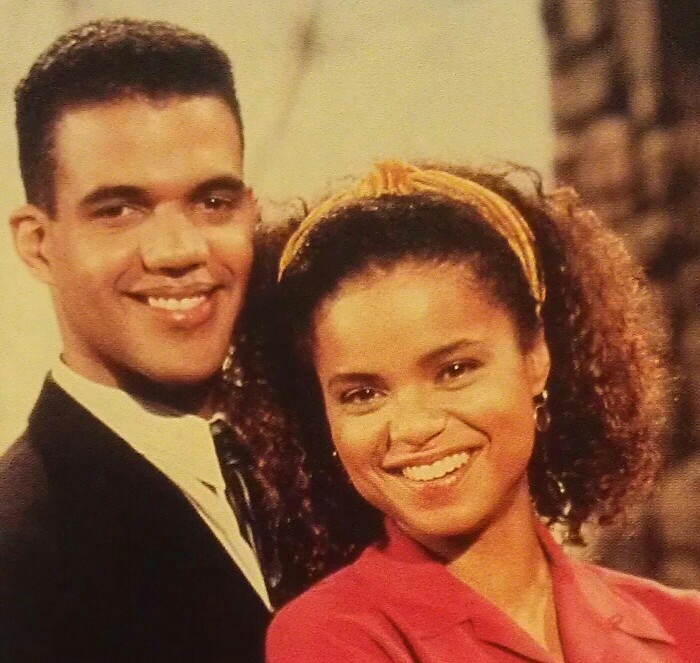Very few of us will be lucky enough to have the same career for over forty years and look as good doing it as Kristoff St. John does.
By looking good, we don’t just mean aesthetics. We mean the high-quality, consistent way in which Kristoff delivers, on-screen and off. Whether you know him as Neil Winters on daytime’s number one drama, The Young and The Restless, or you remember him from guest turns on The Cosby Show or even earlier, on Happy Days and Roots, it’s well-known that he is one of the hardest working men in Hollywood. He has won two Daytime Emmys and many NAACP Image Awards.
Why do we call him an unsung rebel? Because even after forty years in the game, Kristoff St. John is still outspoken, still mindful of the trials facing artists of color, and still makes art on his own terms, independently and for the people. And he comes from a tradition of rebels: his father is Blaxploitation-era actor Christopher St. John.
Now Kristoff has a new venture that he’s pleased to share with you. A Man Called God is a brand new documentary executive produced by Kristoff and directed by his father, Christopher St. John. The true story of his family’s indoctrination into a dangerous cult, A Man Called God promises to be a moving and meaningful story of a family broken and rebuilt.
Rashid Darden, novelist and Executive Director of Gamma Xi Phi, interviewed Kristoff St. John by phone on January 21, 2014.
With special gratitude to Carmen Cardenas.
Rashid: Thanks so much for reaching out to us on behalf of all the brothers and sisters of Gamma Xi Phi Professional Arts Fraternity, Inc. We’re really looking forward to hearing about your current project, so thank you very much.
Kristoff St. John: Well certainly, and thanks for having me. And you know, it’s not every day that I get asked to do interviews via email, but with social media being as large as it is, I sift through very carefully what comes to me and this one was very well-received because I have a deep respect for young brothers and sisters who are in college, who are trying to make a difference, who have a voice, and so it’s important for me to put something back. And that’s why I felt compelled to call you.
Rashid: We definitely appreciate it! So let’s jump right in there. Your documentary A Man Called God seems kind of disturbing. News of your family’s involvement in a cult seems to have taken your fans by surprise. So the first thing we wanted to know was what made you feel that now was the right time to share your story, and not earlier or later?
Kristoff St. John: Ok, well, I understand when you say the word “disturbing” and yes, it is. The documentary itself is a beautiful sort of expose that does have danger, elements of danger, disturbing thoughts, images, and the outcome is definitely something that we hold high as being sort of resolved, something that we had to go through. They talk about the light at the end of the tunnel, and this indeed was that for us. And the reason why it was 34 years in the making is because we filmed the documentary in 1980. We had 15 hours of footage. We didn’t really know how to present this in the early eighties. We felt as if we needed some time to pass before we felt the story would be important enough to put in front of the viewers.
Rashid: It certainly does. So the events of A Man Called God took place during your adolescence. How has that experience shaped you into the man that you are today?
Kristoff St. John: Well, that’s a deep, deep question with a lot of layers, a lot of branches on that tree. I can’t go into the ins and outs of that because you’re going to have to see the film. The short of it is that I’m a better man because of it. I have three children aged 24, 21, and 10. I’ve been able to use that experience as a kind of cathartic healing period of my life and I’ve come out of it, I wouldn’t say unscathed, but it took me many years to figure out what I had gone through and why I had gone through it. At the end of the day, I feel blessed to have been able to make this documentary for people who need to see this, to warn them, to give them an idea of what cult life is really all about.
Rashid: What were some of the challenges of making this documentary?
Kristoff St. John: Well, as an African American artist in this world, we’re faced with challenges every day. Just that alone, we have to trust that road of happy destiny without the assistance and help of the mainstream world out there. It’s not a “poor me, poor me, pour me a drink” kind of moment. It’s really about what we have at our disposal. There are some rather talented African American actors and entertainers that have not collaborated enough to build something that we as a people can visit; to procure some distribution and make some money. And that’s the fault of those out there that don’t want to collaborate. It’s not our fault, so my feeling is that, my challenges, my hurdles, were really to put this together by myself, self-financed, and try to expand on a small company that I already own.
And then the other challenges are it’s a very interesting topic, which there are many people who are still following this man [Bhagavan Sri Sathya Sai Baba]. There’s 50 million people globally, and so I’m up against, it’s sort of like a David and Goliath moment, where I have some material that many people will want to put to sleep and my job is to make sure it’s alive and awake and people can actually view this and judge for themselves, through my journey, what they want to.
Rashid: Absolutely. What was it like working with your family to make this happen?
Kristoff St. John: It was difficult working with my dad, at first, because he’s a visionary in his own right, very talented, came from an incredible theatrical background, hit the stages of NYC, on off-off-off-Broadway and then on Broadway, managed to climb up the ladder to doing feature films. One of his biggest films was starring in Shaft with Richard Roundtree, the classic early 1971 version, not the last one with Samuel Jackson. His journey took him to a place where once you started working on this film, this documentary, he was a man possessed and I saw it happen, I watched it happen, I lived it with him.
And the moment that we saw, I saw, what he had been working on like a mad scientist in the laboratory, I knew that this would not be a version that would be palatable, acceptable, or viewable by the mainstream in public. Not because it isn’t good, because my father is actually a genius in my book, but because his Fellini-esque way of storytelling is just that. Fellini was an incredible Italian director and artist. If you got him, if you understood him, then you thought he was brilliant, but a lot of people didn’t.
And so my job was to gently cajole… and get the film from the mad scientist’s laboratory. And I did just that and it took me a while. I worked in concert harmony with my stepmom Maria, who was along for the journey. In fact, she was more than just along. She spearheaded the event way back in the seventies, and I think we’re all better off because of it.
Rashid: What are the best things your fans can do to support A Man Called God?
Kristoff St. John: Watch this film and spread the word. Expose the truth and warn the people. You have to first start off by getting the information and that’s THE KEY. If you don’t have the information, you can’t disseminate it, so we have to be knowledgeable enough as a people to procure it by going to the websites, to the social media.
I would love for people to do with this project A Man Called God. Word of mouth grassroots is very important this day and age, especially when these are self-funded projects. We are more and more involved with self-produced, self-distributed information and projects.
Rashid: Prior to the events in your film, you had been a successful child actor. In the late seventies and early eighties, you had been in the film Sister, Sister which is one of my personal favorites when I was a young kid, Bad News Bears, The Richard Pryor Show, and some others. What are some of your favorite memories of being a child actor?
Kristoff St. John: My father was my manager and guardian on most of, if not all of, my jobs. I remember at the age of 6 looking at my dad. He had just started Shaft and he was about to start production on a movie called Top of the Heap. And I asked him, “Dad I want to do what you’re doing. How do I do this, how do I, I want to be an actor, Dad.” And he said “You just got to watch me.” He said, “Watch me for a while,” and I was very keen on watching. You know I’ve always been that kind of dude anyway. I like to see, witness, analyze, and then act. And so he put me in the business quite literally at the age of 7 ½. My first job was on That’s My Mama. Second gig was Happy Days. It was a big show at the time with the Fonz, Richie Cunningham, Mr. C, and Garry Marshall.
Little quick story: [Garry Marshall] had hired me for this episode of Happy Days as Booker Brown. He loved this little character Booker Brown so much that he asked my Dad if he could put me in a new show that they were doing, a new pilot, and that pilot was for Laverne and Shirley. It was a backdoor pilot for the girls Cindy Marshall and Penny Marshall. And here’s the crazy thing—I was replaced not because he didn’t like me, but because of two characters that they threw in at the last minute, it was Lenny and Squiggy.
Rashid: You got replaced by Lenny and Squiggy!?
Kristoff St. John: Yeah man, but you know what, I don’t mind because they were funny dudes and looking back, that’s what that show needed. Although I might have been that cute little black kid that had just blown up like Gary Coleman in Diff’rent Strokes. Who knows what my life would have been like? I’m very glad that it’s gone the way it has, you know, and that’s how I got my start in the business.
Rashid: What are some of your favorite memories from your years on The Young and the Restless?
Kristoff St. John: Oh gosh, there are so many, Rashid. You know, I’ve been doing this show for 23 years and I can’t quite pinpoint the most favorite time of my life on this show, but I can tell you that there were, you know, storylines that rang clear and true and beautifully for me personally.
One of them was the inception of the relationship between Neil and Drucilla. And she was a street urchin, you know, coming into Genoa City, not being able to read. Nathan taught her to read and I came barreling through six months later as a young junior executive for Jabot. And we met and never looked back. I mean it was like fire man, it was fiery, two people who couldn’t have come from more opposite backgrounds somehow found love and carried their journey on for decades.
But, you know, that period of the show was probably my favorite because the inclusion of the character of Malcolm (Shemar Moore), the character of Olivia (played by Tonya Lee Williams), I mean, I don’t know if you know, if you research the history of the show, there’s been a lot of African American guest stars on this show for periods of time. Vivica Fox came on… We had Aaron Neville blow through town. I mean, we’ve really done, we’ve had an interesting cast over the past two decades, and I’ve watched so many, you know, Darius McCrary from Family Matters came in…knowing Darius man, you know I love my dude and he was right on point.
To pick an exact moment, I can’t do that, but I can tell you that the entire run has been a favorite part of my life. It’s been half of my life, Rashid, half of my life and I wouldn’t trade it for the world.
Rashid: Who are some of your favorite actors and actresses out there right now?
Kristoff St. John: Well, my favorite actor of all time is Christopher St. John, my father. I mean, he’s just so gifted and wasn’t able to do what he really wanted to do, which was the movie star that he had become was quickly doused the flames, his fiery ball was doused by being blacklisted after he did his Top of the Heap blaxploitation movie. You know, interesting how his journey ended, or not ended, has just begun again with this documentary A Man Called God.
Rashid, some of my other peeps are Denzel, Bobby Deniro. I love Idris Elba, he’s just such a solid actor. I can’t even say my dude’s name, so I just say it fast— Chiwetel Ejiofor. I can’t even pronounce his name, but he’s fantastic. I mean I got so many. Man, I used to watch Bob Hope and Bing Crosby on Saturday mornings because my parents wouldn’t let me watch cartoons. I watched all the road pictures. Abbott and Costello. I mean stuff you wouldn’t even think about, I was watching, you know what I’m saying? Diahann Carroll is one of my favorites. James Earl Jones is one of my favorites. There’s just so many.
Rashid: What advice do you have for young men and women of color that are trying to make it as actors or filmmakers?
Kristoff St. John: Well, this business has changed so dramatically since I first entered in the early seventies. Back in the seventies, there wasn’t nearly as much competition. There’s been so much growth since then, which means there’s that many more people at the watering hole and the water is dissipating. Not quickly, but there’s just not the lake that used to exist.
And my advice and suggestion is “If you dream it, become it.” If you can see yourself being a photographer, a director, cinematographer for that matter, lighting director, casting director, singer, an artist, an actor, a producer, we need more of them. We have very few African Americans behind the scenes.
You know, I caution young men and women, young African American women and men, take a good look before you step into Hollywood becoming an actor or an actress. There’s quite a few that are beating down the doors, but we have very few that are in key positions behind the camera. There are no Black directors or writers on my show presently, or producers. This is a bit of a travesty because our voice is loud on the show. We’ve had many African Americans on this show since inception. Bill Bell Sr., William J. Bell Sr., who created the show, had a vision to bring in a large cast of African American talent and that spoke volumes to me.
You know I was working on the last place show Generations on NBC, and when that show went down in flames, I jumped ship over to Young and the Restless. I was offered four shows at the time. With this character Drucilla, I had been watching her since she started because I heard the buzz “Hey there’s this hot, there’s this fine mamma jamma on Young and the Restless, you gotta check her out man.” And I started watching and I realized what the difference between our show, our last place show, and the #1 show Young and the Restless, was the lighting, the writing, the texture, the feel, and it felt more real.
Although I gotta give credit to Sally Sussman who created Generations because actually the writing on that show was superior in many ways because she was tackling stuff that Young and the Restless wouldn’t dare touch. We had Martin Luther King Day, are you kidding, we had the “I Have a Dream” speech at the end of that episode. This was a Black core family, the Marshall family, starring Taurean Blacque as my father who ended up being Jim Reynolds, Joan Pringle as momma, Debbie Morgan was my sister, we had Jonelle Allen…. I mean we had some very serious, very talented Black artists and unfortunately, that show’s demise was large and felt and echoed everywhere, but fortunately for me, if it hadn’t have been cancelled, I would never, I would never have spent the last 23 years on The Young and the Restless. So, the blessings are there man. Yessir.
###
A Man Called God debuts on Saturday, February 1, 2014 at 3:30pm the San Diego Black Film Festival.
It screens in Los Angeles, California at the 22nd Annual Pan African Film Festival on Sunday, February 9, 2014 at 6:35pm and on Friday, February 14, 2014 at 3:25pm.
It will also screen in Palm Springs, California at the American Documentary Film Festival in March 2014. Exact dates and times will be announced in February.
Follow Kristoff St. John on Facebook and on Twitter.
Visit the A Man Called God website and follow A Man Called God on Facebook, Twitter, Google+, and YouTube.
